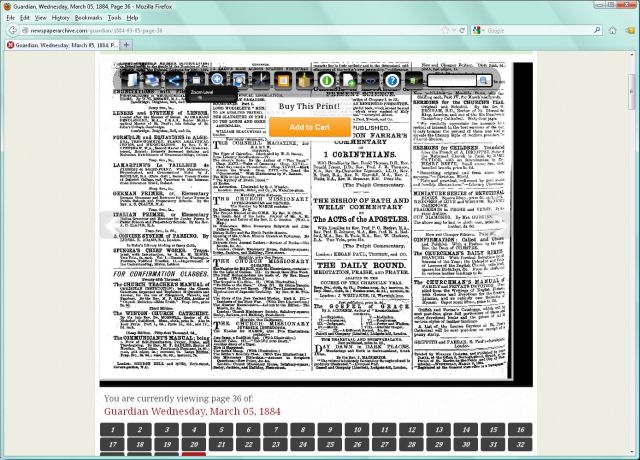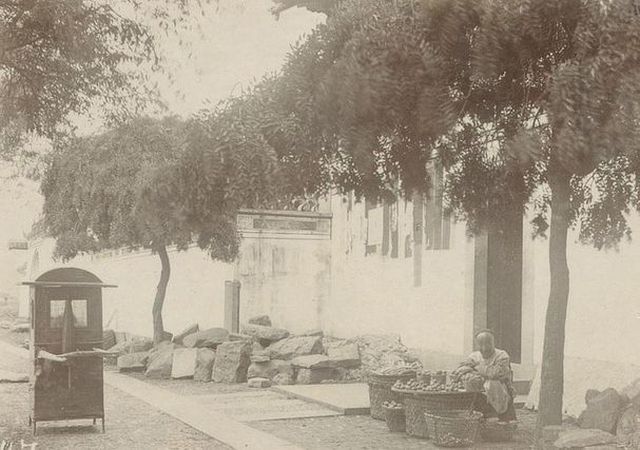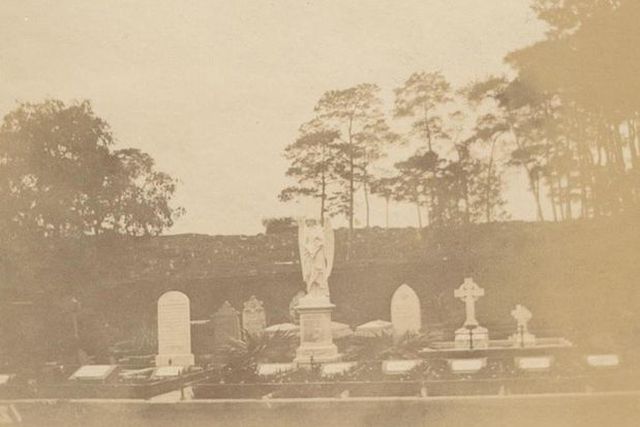
Ellen Jennings was the second daughter of Peter Harnett Jennings.
She was born in 1850, in Sheffield. At the time of her mother’s death, in 1861, she was living with her grandparents at St Martin’s Street Dover.
Between 1861 and her marriage in 1881, there are no records to be found of Ellen at all. Her two sisters went to the St Mary’s Hall school in Brighton.
What made Ellen Jennings go to China? Perhaps she was a nurse, or a teacher, as the following story regarding the Mission reveals that they ran schools and hospitals.
China Inland Mission (Overseas Missionary Fellowship) China Inland Mission (Overseas Missionary Fellowship)
One of the most active missionary organisations in China, the China Inland Mission (CIM) was an interdenominational Protestant missionary society founded in the UK by James Hudson Taylor in 1865. The first Mission was established at Hangchow, Chekiang in 1866.
The CIM was unconventional in its approach to missionary work compared with other missionary organisations of the period. This included the adoption of local dress by all its missionaries, and actively recruiting female missionaries to serve in their own right rather than simply as married companions to their husbands. The CIM established a school at Chefoo [Yantai], China, in 1880. Its aim was to provide an education for the children of missionaries and the business and diplomatic communities.
Despite suffering heavy casualties during the Boxer Uprising (1898-1901), the CIM continued to grow and develop, reaching the peak of its activity in 1934 with 1,368 workers based at 364 stations throughout China. Thereafter war and revolution led to a decline in missionary numbers. During the Sino-Japanese War (1937-1945), missionaries remained at their station where they could, caring for refugees and organising welfare camps. Many were sent to Japanese internment camps in Shanghai and Yangchow.
The CIM began to withdraw its missionaries following the establishment of the People’s Republic of China in 1949. It was decided that the Mission should continue its work in the East and missionaries were sent to new fields in Thailand, Malaysia, Japan, the Philippines, Indonesia and Taiwan (and later to Korea, Singapore and Hong Kong). Renamed the Overseas Missionary Fellowship in 1964, the organisation’s work retained a strong emphasis on evangelism, with support for literature programmes, medical services, linguistic work, student work and outreach.
One of the most active missionary organisations in China, the China Inland Mission (CIM) was an interdenominational Protestant missionary society founded in the UK by James Hudson Taylor in 1865. The first Mission was established at Hangchow, Chekiang in 1866.
The CIM was unconventional in its approach to missionary work compared with other missionary organisations of the period. This included the adoption of local dress by all its missionaries, and actively recruiting female missionaries to serve in their own right rather than simply as married companions to their husbands. The CIM established a school at Chefoo [Yantai], China, in 1880. Its aim was to provide an education for the children of missionaries and the business and diplomatic communities.
Despite suffering heavy casualties during the Boxer Uprising (1898-1901), the CIM continued to grow and develop, reaching the peak of its activity in 1934 with 1,368 workers based at 364 stations throughout China. Thereafter war and revolution led to a decline in missionary numbers. During the Sino-Japanese War (1937-1945), missionaries remained at their station where they could, caring for refugees and organising welfare camps. Many were sent to Japanese internment camps in Shanghai and Yangchow.
The CIM began to withdraw its missionaries following the establishment of the People’s Republic of China in 1949. It was decided that the Mission should continue its work in the East and missionaries were sent to new fields in Thailand, Malaysia, Japan, the Philippines, Indonesia and Taiwan (and later to Korea, Singapore and Hong Kong). Renamed the Overseas Missionary Fellowship in 1964, the organisation’s work retained a strong emphasis on evangelism, with support for literature programmes, medical services, linguistic work, student work and outreach.



Old English Cemetery Hang Chow this cemetery was destroyed 100 years ago
English school in Hang Chow




